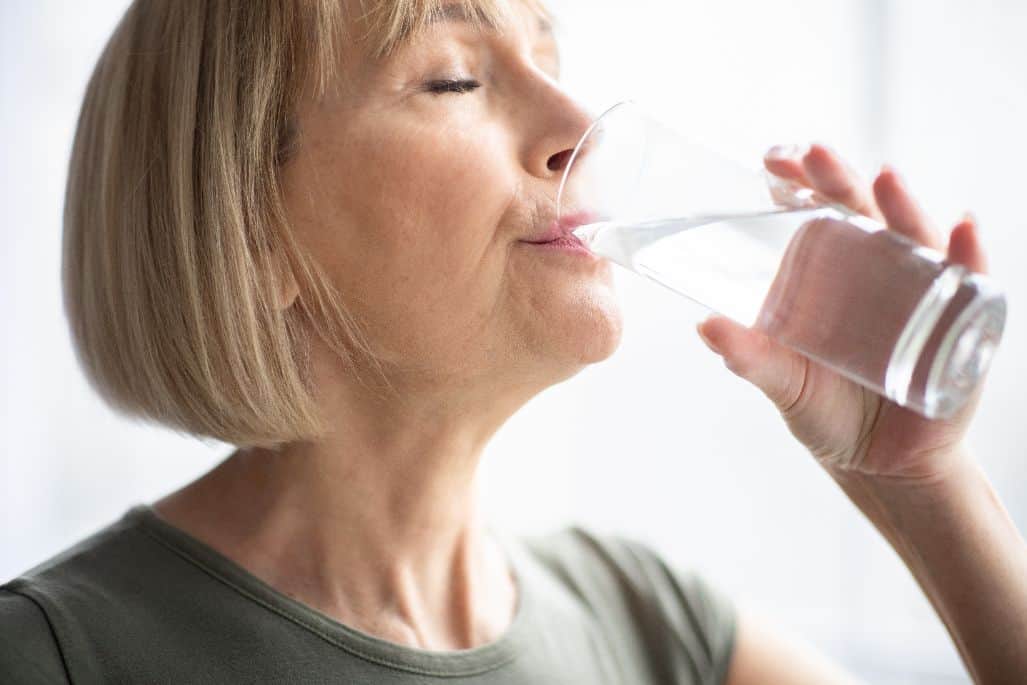How Much Water Should I Be Drinking: Hydration for Seniors
March 6, 2021
Warm weather is quickly approaching, and after a long, few months of staying in your home, you’ll likely want to get outside and take advantage of the warmth of the sun. No matter how you choose to spend that time — whether it’s riding a bike through Tourne County Park, mastering the putting green or just reading a book in the sunlight — being outside comes with many health benefits, like an increase in vitamin D and energy boosts. However, there are also some consequences we need to be wary of, including dehydration.
When you use or lose more fluid in your body than you take in and your body no longer has the appropriate levels of fluid to carry out normal functions, you experience dehydration. Proper hydration is important at any stage of life, but it’s particularly vital for older adults as they can experience a more negative outcome of dehydration.
Tips for Staying Hydrated
Thankfully, there are a few easy ways you can stay hydrated during the warmer months and enjoy your time outdoors in a healthy way.
- Drink Plenty of Fluids: While it may seem obvious, it’s important to stress the necessity of drinking plenty of fluids to guarantee proper hydration. To help meet your daily fluid intake needs, try carrying a water bottle with you to drink from during the day, even while you’re out and about. While water seems like the obvious choice to fill a water bottle, you can also add variety by opting for juice, milk, tea or flavored water.
Of course, there’s always the question: how much water should I be drinking each day? The answer to that depends on your level of activity and your body’s needs. The general recommendation is 8 glasses worth of water, but you may want to discuss what is best for you with your healthcare provider. - Eat Plenty of Fruits and Vegetables. While drinking your fluids is the fastest way to keep your body hydrated, adding fruits and vegetables to your diet throughout the day helps to increase your fluid levels. Produce such as cucumbers, watermelon, blueberries, pineapple and celery are all considered to be fluid-rich, meaning they contain higher levels of water than other fruits and vegetables, helping you to stay hydrated.
- Know the Signs of Dehydration. By learning about and recognizing the warning signs of dehydration, you’ll be better prepared to increase your fluid intake before you experience any significant effects. While each person’s body is different and you may not experience some side effects, the common signs of dehydration for adults include:
- Extreme thirst.
- Less frequent urination.
- Dark-colored urine.
- Fatigue.
- Dizziness.
- Confusion.
Enjoy a Healthy Lifestyle at The Oaks at Denville
At The Oaks at Denville, we offer our LivWell program, designed with your specific health and wellness goals in mind. LivWell is a holistic wellness program that focus on each of the seven dimensions of wellness, including your physical health. At The Oaks, you’ll have the opportunity to participate in a multitude of activities, services and amenities so you can be the healthiest version of yourself. Life is all about choice here, and we’ll happily guide you to the things that interest you and improve your own definition of wellness.
To learn more about our award-winning LivWell program and how we can help you on your wellness journey, contact us today or schedule your personalized visit.




